2009 Toyota Camry Tires & Services
Get Started
Complete Auto Care for Your 2009 Toyota Camry
-
TIRES FOR YOUR 2009 Toyota Camry View Tire Info GET TIRE PRICING
-
REPAIR FOR YOUR 2009 Toyota Camry View Repair Info SCHEDULE REPAIR
-
MAINTENANCE FOR YOUR 2009 Toyota Camry View Maintenance Info SCHEDULE MAINTENANCE
-
OFFERS FOR YOUR 2009 Toyota Camry Limited Time Tire Offers VIEW ALL COUPONS
2009 Toyota Camry Tires
Recommended Tires | Tire Information
2009 Toyota Camry Tires Sizes, Speed Ratings, and Inflation
Not sure about your 2009 Toyota Camry tire size? Use the following chart to find information on tire size, speed rating, and inflation.
| Trim Level | Speed Rating | Inflation in PSI F/R | Tire Size |
|---|---|---|---|
| 2009 Toyota Camry SE* | V | 32 PSI/32 PSI | P215/55R17 |
| 2009 Toyota Camry SE* | V | 32 PSI/32 PSI | P215/55R17 |
| 2009 Toyota Camry Hybrid* | V | 32 PSI/32 PSI | P215/60R16 |
| 2009 Toyota Camry Hybrid* | V | 32 PSI/32 PSI | P215/60R16 |
| 2009 Toyota Camry XLE* | V | 30 PSI/30 PSI | P215/60R16 |
| 2009 Toyota Camry XLE* | V | 30 PSI/30 PSI | P215/60R16 |
| 2009 Toyota Camry LE* | V | 30 PSI/30 PSI | P215/60R16 |
| 2009 Toyota Camry LE* | V | 30 PSI/30 PSI | P215/60R16 |
| 2009 Toyota Camry LE* | V | 32 PSI/32 PSI | P215/60R16 |
| 2009 Toyota Camry LE* | V | 32 PSI/32 PSI | P215/60R16 |
| 2009 Toyota Camry Base* | V | 30 PSI/30 PSI | P215/60R16 |
| 2009 Toyota Camry Base* | V | 30 PSI/30 PSI | P215/60R16 |
|
2009 Toyota Camry SE* Speed Rating: V Inflation F/R: 32 PSI/32 PSI |
|
2009 Toyota Camry SE* Speed Rating: V Inflation F/R: 32 PSI/32 PSI |
|
2009 Toyota Camry Hybrid* Speed Rating: V Inflation F/R: 32 PSI/32 PSI |
|
2009 Toyota Camry Hybrid* Speed Rating: V Inflation F/R: 32 PSI/32 PSI |
|
2009 Toyota Camry XLE* Speed Rating: V Inflation F/R: 30 PSI/30 PSI |
|
2009 Toyota Camry XLE* Speed Rating: V Inflation F/R: 30 PSI/30 PSI |
|
2009 Toyota Camry LE* Speed Rating: V Inflation F/R: 30 PSI/30 PSI |
|
2009 Toyota Camry LE* Speed Rating: V Inflation F/R: 30 PSI/30 PSI |
|
2009 Toyota Camry LE* Speed Rating: V Inflation F/R: 32 PSI/32 PSI |
|
2009 Toyota Camry LE* Speed Rating: V Inflation F/R: 32 PSI/32 PSI |
|
2009 Toyota Camry Base* Speed Rating: V Inflation F/R: 30 PSI/30 PSI |
|
2009 Toyota Camry Base* Speed Rating: V Inflation F/R: 30 PSI/30 PSI |
* Note: these models have different tire sizes depending on vehicle options.
Recommended Tires for Your 2009 Toyota Camry
What tires are best for a 2009 Toyota Camry? Check out the following tire brands and types.
 Blizzak WS90
Blizzak WS90
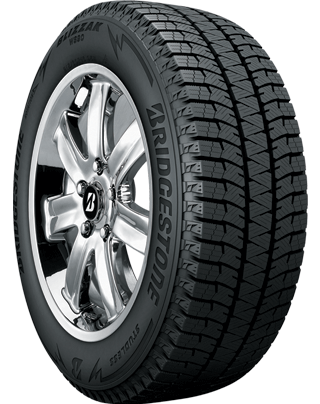
- No warranty
- Winter
- Winter
 Ecopia EP422 Plus
Ecopia EP422 Plus
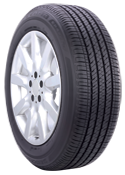
- Platinum Pact Limited Warranty
- All-Season
- Performance
 DriveGuard Plus
DriveGuard Plus
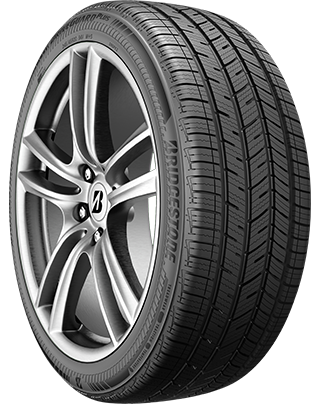
- Platinum Pact Limited Warranty
- All-Season
- Performance
 Turanza QUIETTRACK
Turanza QUIETTRACK
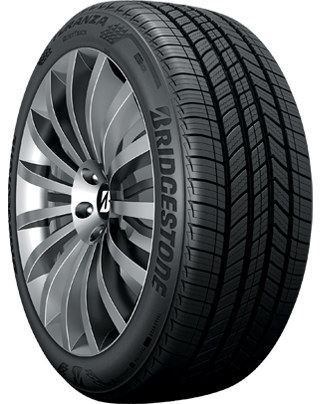
- No warranty
- All-Season
- Performance
 WEATHERPEAK
WEATHERPEAK
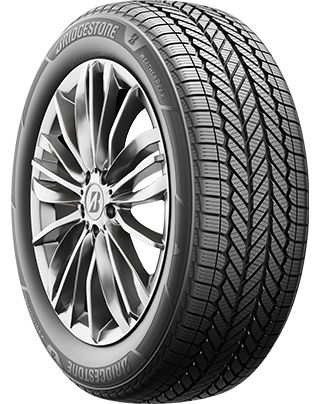
- Platinum Pact Limited Warranty
- All-Season
- Passenger Tires
 Potenza Sport AS
Potenza Sport AS
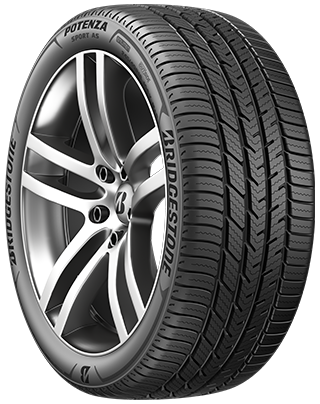
- Platinum Pact Limited Warranty
- All-Season
- Performance
 Turanza LS100
Turanza LS100
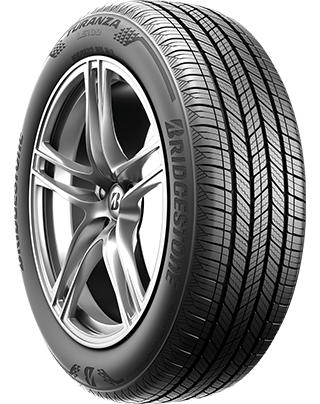
- Platinum Pact Limited Warranty
- All-Season
- Performance
 Turanza T005A
Turanza T005A
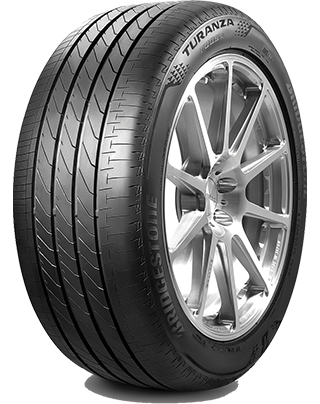
- No warranty
- Summer
- Performance
 ALL SEASON
ALL SEASON

- No warranty
- All-Season
- Passenger Tires
 WEATHERGRIP
WEATHERGRIP
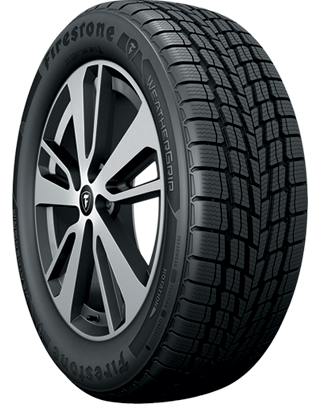
- No warranty
- All-Season
- Passenger Tires
 Winterforce 2
Winterforce 2
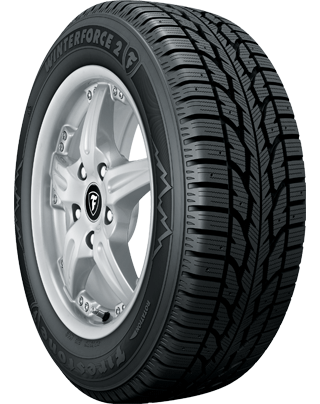
- No warranty
- Winter
- Winter
 Firehawk Indy 500
Firehawk Indy 500
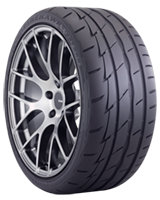
- Gold Pledge Limited Warranty
- Summer
- Performance
 Firehawk AS V2
Firehawk AS V2
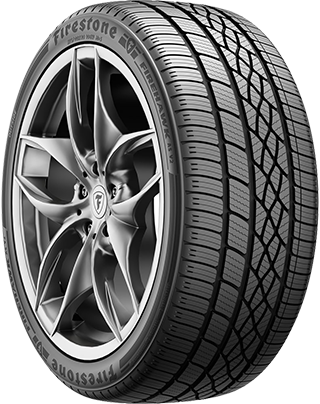
- No warranty
- All-Season
- Performance

- No warranty
- All-Season
- Passenger Tires

- No warranty
- All-Season
- Passenger Tires
 Extensa A/S II
Extensa A/S II

- No warranty
- All-Season
- Passenger Tires
Choosing 2009 Toyota Camry Tires
Apart from finding the right tire size, you also want to think about a couple of other things when getting new Toyota Camry tires like where and how you drive, and what tire brand you trust most. When thinking about your driving conditions, consider where you live (mountains vs. city vs. countryside) and the kind of weather can catch you off-guard. (Watch out Tornado Alley!) Many drivers who live in states that experience all four seasons choose to purchase two sets of tires: one for winter and one for summer. Other drivers buy one set of all-season tires instead. That way they don't have to return to the tire shop and their vehicle is always ready for sun, rain, and light snow!
Driving style is next on the list to think about when buying tires. If you're a big off-roading fan who forges paths where others can't, you have very different needs than a long-distance commuter who sticks to the highway. Talk to a tire technician at Firestone Complete Auto Care for help choosing the best tire for you, or start shopping for Toyota Camry tires online.
Installing Toyota Camry Tires
Firestone Complete Auto Care installs more tires on more cars than most other companies. We're your one-stop shop for tire installation, rotation, and ongoing maintenance! We make it easy to buy new 2009 Toyota Camry tires online and book an installation appointment at the same time.
2009 Toyota Camry Tire Questions
-
Is Toyota tire inflation important? The right tire pressure can make all the difference. Proper tire inflation helps increase fuel economy, improve braking time, and boost tire lifespan! Even a small change in tire pressure can impact your driving.
-
What do the numbers on my Toyota Camry tires mean? Your tire sidewall numbers tell you the recommended load carrying capacity, speed rating, treadwear, traction, and tire size. Talk to a tire technician to learn how to read Toyota tire numbers.
-
Can I check the tread depth on my Toyota tires at home? Stay on top of your tire tread depth to help avoid a dangerous drive. You can check tread depth with a penny. Hold the penny so that Abraham Lincoln is facing you, then place your penny into a tread groove upside down. If you can see the top of Abe’s head, your tread is shallow and it might be time for new Toyota Camry tires. Grab a penny. Hold the so that Abe Lincon's head is facing you and his hair is pointing toward the ground. Then, place the penny into a tread groove. If you can see the top of Abe’s head, your tread is shallow and it might be time for new Toyota Camry tires.
Types of 2009 Toyota Camry Repairs
Want more details? Choose a service below to read more about Toyota Camry repairs at Firestone Complete Auto Care.
About 2009 Toyota Camry Repairs
For most drivers, the words “car repair” don’t exactly spark excitement. But we work to provide you with a different experience at Firestone Complete Auto Care. Bring your 2009 Toyota Camry in for repair services and our technicians will take care of your Camry like it was their own. We'll work to evaluate the scope of repairs needed and explain your options. If a repair isn't necessary, we won't recommend it.
How Much Does Toyota Camry Repair Cost?
Several factors can affect the cost to repair your 2009 Toyota Camry, including the type of repair, prices of appropriate replacement parts, the labor involved, and where you live. They're updated regularly!
A few different aspects can influence repair costs for your 2009 Toyota Camry, like
Questions About 2009 Toyota Camry Auto Repairs
-
Do I still need scheduled maintenance even when nothing is wrong with my Toyota? Don’t neglect scheduled maintenance. Sure, you could skip out on a few recommended maintenance services, but you may pay the price later. Bring your vehicle to Firestone Complete Auto Care at recommended service intervals to address minor issues before they get out of hand and keep your car running newer, longer.
-
What's wrong if something feels 'off' in my Toyota? No, we’re not talking about finding the best jams on the radio! You know your car best, and you’re the first person who will notice if something doesn’t feel right (like new smells, sights, or sounds coming from your car). If you sense that something is 'off,' stop in for a Courtesy Check to have these symptoms checked out ASAP. Early action could help you prevent Toyota Camry repairs.
-
Do I have to get the repairs you recommend for my Toyota? We won’t recommend a service or repair for your 2009 Toyota Camry unless we think it’s necessary to keep you safe. Want to know more about a specific recommended repair? Ask! We’re here to help.
Brake Repair for Your 2009 Toyota Camry
You might have a strong and reliable engine in your Toyota Camry. But if you can’t brake, it might as well be scrap metal. If you notice your brakes are squeaking or not working well, don’t wait! Safe driving and responsive brakes go hand in hand. Plus, ignoring your brake problems can result in more damage and higher brake repair bills. Get your 2009 Toyota Camry brakes fixed at Firestone Complete Auto Care. We offer many affordable brake repairs like pad/shoe replacement, brake rotor/drum refinishing, brake fluid exchange/bleeding, and brake caliper and wheel cylinder service.
Questions About Your Toyota Camry Brakes
-
Why is my Camry shaking as I brake? If your Camry shakes when you brake, you could be dealing with warped rotors, faulty brake calipers, worn brake pads or rotors, or loose or worn suspension parts. Schedule a free brake inspection at Firestone Complete Auto Care for help diagnosing your brake issue.
-
What is the average lifespan of Camry brake pads? Brake pads typically last about 30,000 to 40,000 miles. However, driving conditions can affect this range. Sticking to highway driving and braking smoothly can help extend the life of your brake pads, while towing heavy loads or frequently riding your brakes can shorten it.
-
Does brake fluid leak when the car is off? Your Camry brake system is a closed hydraulic system, which means that the brake fluid should not leak out of the system under normal circumstances. However, over time, the various components of the brake system can wear out or become damaged, which can cause brake fluid to leak out of the system.
2009 Toyota Camry Drivetrain Repairs
You don't want to go to just anyone for drivetrain repair. Drivetrains for front, rear, and all-wheel-drive and 4WD vehicles are all different. You want to visit Firestone Complete Auto Care. We can help repair all of your 2009 Toyota Camry drivetrain components Your Camry might need driveshaft repair if you notice resistance when turning, heavy vibrations in your floorboards, clunks when shifting, or vibration as your vehicle accelerates.
Questions About 2009 Toyota Camry
-
What are signs my Toyota drivetrain is damaged? Your Toyota Camry drivetrain might be damaged if you notice strange noises from the rear of your vehicle, see fluid leaking, or have issues turning.
-
What causes a Camry’s malfunction indicator light (MIL) to illuminate? Engine problems, transmission problems, faulty sensors, electrical issues, misfire issues, and connector problems could all cause your Camry’s malfunction warning light, or better known as the check engine light, to illuminate.
-
How concerning is a drivetrain malfunction in my Camry? A drivetrain malfunction in your Camry should never be taken lightly. Driving with a malfunctioning drivetrain can put you in danger and lead to further vehicle damage, so it's essential to have a qualified mechanic assess and repair the problem as soon as possible.
2009 Toyota Camry Alignment Services
Alignment services involve precise adjustments to your Toyota Camry’s suspension system, which connects the wheels with the rest of the vehicle. During the service, the individual angles of your tires are adjusted so that they come into contact with the road in just the right way — the way Toyota intended them to. Bring your 2009 Toyota Camry in for a wheel alignment and we'll start with an alignment check. After that, we can adjust your wheel alignment angles until they match Toyota’s recommended measurements.
Toyota Camry Alignment Questions
-
Are there road conditions that can hurt my Toyota Camry alignment? Potholes and uneven roads can knock your car out of alignment, so stay aware of the road ahead and adjust your speed (or avoid these obstacles whenever it’s safely possible).
-
How often does your Camry need a wheel alignment? Check your Camry owner's manual for Toyota's recommended interval. It's generally a good idea to check your alignment every 6,000 miles or 6 months, depending on which comes first.
-
Do you need to get your Camry wheels aligned? You likely aren't required to get an alignment when you put new tires on your Camry, but it's a super smart idea! An alignment can help ensure optimal tire wear, fuel efficiency, and handling. Still, you should reference your Camry owner’s manual for what’s recommended.
Engine Repairs for Your 2009 Toyota Camry
If your 2009 Camry engine needs repairs, our technicians will provide you with a thorough explanation beforehand. We never do any work without your sign-off. If a repair isn’t urgent right now, we’ll let you know. But if immediate repairs are necessary for your safety, we’ll make sure that's clear, too. We want to provide you with the information you need to make an informed engine repair decision. Turn to Firestone Complete Auto Care for your 2009 Camry engine repairs and you can drive easy knowing that we use Toyota-approved parts and fluids — serpentine belt, oil gasket, ignition coil, or a different component.
Questions About 2009 Toyota Camry Engines
-
Why does the check engine light come on when I start my Camry? Generally, your check engine light turning on upon ignition is not a bad thing. It’s just your Camry firing up its circuits. The light should turn off in a bit, but come see us if it doesn't.
-
Why is my Toyota Camry making engine noise? Strange under-the-hood noises can point to problems within your Toyota Camry engine. Tapping or knocking could mean you need an oil change. Whistling sounds could mean you have an intake leak or misaligned belt. Squealing may be caused by a loose fan belt, and grinding could be a sign that something is wrong with your brakes — not the engine.
-
Are you unknowingly damaging your Toyota Camry engine? Some driving habits are not so great for your engine. These include driving on a near-empty gas tank, flooring the gas pedal while the car is in Park, or accelerating too quickly, too soon. Protect your engine’s performance and efficiency by distancing yourself from these habits.
2009 Toyota Camry Tire Repair
If the road has been rough on your 2009 Toyota Camry tires, Firestone Complete Auto Care can help. Our tire technicians can determine whether it's safe to plug and patch the tire, or whether it needs to be replaced. We’ll begin by taking a look at where the damage is, the type and extent of the tire damage, and how all of your tires are wearing.
If your 2009 Toyota Camry tire puncture can be repaired, the repair process is actually fairly simple: (1) Separate the tire from the vehicle wheel, (2) fill the puncture to keep the moisture out, and (3) re-seal the inside lining of your tire so that air won’t escape.
Toyota Camry Tire Repair Questions
-
How soon should I have my flat tire repaired? Driving on a flat or underinflated tire can put extra stress on your wheels and alignment. While it’s sometimes necessary to drive a short distance on a flat tire to get to a safe place, don’t take any other trips in your Camry until you can have the flat tire repaired or replaced.
-
Can I use an emergency/temporary sealant to fix my Toyota's flat tire? A temporary sealant may be able to help you get to a repair location safely. But temporary or emergency sealants could possibly damage TPMS sensors, and in some cases may even void the warranty on your Bridgestone or Firestone tires. If your tire needs extensive repair, sealant can add time and labor costs to the process.
-
What is causing the tires on my Camry to keep losing air? Your Camry tires might keep losing air due to a leaking valve stem, puncture or hole in the tire tread or sidewall, or damaged wheel.
Maintenance for Your 2009 Toyota Camry
Take care of your Toyota Camry and it'll take care of you. With the right maintenance at the right time, your Camry has a good chance of hitting 200,000 miles or more.
2009 Toyota Camry Maintenance Schedule
What is the manufacturer recommended maintenance schedule for a 2009 Toyota Camry? Find maintenance info for your vehicle.
About 2009 Toyota Camry Scheduled Maintenance
Instead of waiting for an issue to arise with your Camry, you can stay ahead of problems before they even begin. It’s as easy as following the recommended maintenance schedule that’s been written specifically for your 2009 Toyota Camry! The recommended maintenance schedule is put together by Toyota, your vehicle manufacturer. Driving conditions, climate variations, and other variables can affect which scheduled maintenance services you’ll need; however, recommended maintenance usually includes services like fluid exchanges, filter changes, new brake pads, oil changes, and tire rotations. Staying on track with routine service appointments can help your Camry perform better, keep you safer on the road, and help you avoid expensive repairs caused by 2009 Toyota Camry problems later.
Learn About Vital Maintenance Needs for Your Toyota Camry
Come to Firestone Complete Auto Care for manufacturer-recommended routine maintenance on your 2009 Toyota Camry and an expert technician will begin by performing a Courtesy Check. The Courtesy Check helps us see what we’re working with under the hood, and allows us to alert you to any potential problems before they worsen. Every Courtesy Check will include a visual inspection of your Camry. We’ll check your head and tail lights, fluid levels, filters, tires (and their alignment!), and windshield wiper blades. We’ll also perform a free battery check to determine your battery’s charge level.
Firestone Complete Auto Care is your spot for 2009 Toyota Camry maintenance. So visit us regularly, or visit us urgently. Many locations are open on weekends and in the evening.
2009 Toyota Camry Maintenance Questions
-
When should I have Toyota Camry alignment checked? Check your car for pothole damage! If you’ve recently hit a pothole (or even if you don’t remember hitting one… they can be sneaky!) check your tire treads, tire sidewalls, and wheels for damage. Potholes can also knock your car out of alignment, so have your alignment checked if you suspect you’ve driven over a rough patch of road lately.
-
When should I switch my Toyota Camry to high mileage oil? Got 75,000+ miles on the odometer? Consider high mileage motor oil. High mileage oil is formulated to address the specific problems encountered by high mileage vehicles, or those with more than 75,000 miles. It can help reduce oil consumption, smoke, and emissions from older Toyota Camry engines.
-
Can I ignore dashboard lights on my Toyota? Because there might be a problem under the hood. Those warning lights are there for a reason! As soon as you notice that one’s illuminated, take your Toyota Camry to Firestone Complete Auto Care so you can address any small problems long before they worsen.
2009 Toyota Camry Battery Replacement & Size
Researching battery replacements for your Toyota Camry?
| Battery | Engine | Warranty | Cold Cranking Amps | |
|---|---|---|---|---|
| 24F-3 | V6/3.5L | Replacement 24 months | Performance months | 650 |
| 24F-3 | V6/3.5L | Replacement 24 months | Performance months | 650 |
| 35-2 | V6/3.5L | Replacement 36 months | Performance months | 640 |
| 35-2 | V6/3.5L | Replacement 36 months | Performance months | 640 |
| 24F-RP | V6/3.5L | Replacement 48 months | Performance months | 750 |
| 24F-RP | V6/3.5L | Replacement 48 months | Performance months | 750 |
| 24F-3 | L4/2.4L | Replacement 24 months | Performance months | 650 |
| 24F-3 | L4/2.4L | Replacement 24 months | Performance months | 650 |
| 35-2 | L4/2.4L | Replacement 36 months | Performance months | 640 |
| 35-2 | L4/2.4L | Replacement 36 months | Performance months | 640 |
| 24F-RP | L4/2.4L | Replacement 48 months | Performance months | 750 |
| 24F-RP | L4/2.4L | Replacement 48 months | Performance months | 750 |
2009 Toyota Camry Car Batteries
On average, auto batteries last anywhere from three to five years. Check your battery regularly and replace it as needed so it doesn’t leave you and your Toyota Camry stranded. Pay attention to clues that your battery is on its way out. A sluggish engine start, a blinking battery or check engine light, swollen battery case, corroded battery terminals, or dim headlights can all be signs that your battery needs attention.
Plus, at Firestone Complete Auto Care, we’ll test your battery for free. Stop by for a free battery test and, if necessary, a battery replacement to help keep your 2009 Toyota Camry running! Car batteries are one of our many specialties! Our expert technicians understand Toyota service recommendations for Camry battery CCAs and reserve capacity. Get help figuring out the battery size that matches your vehicle, and schedule a weekday or weekend battery replacement service for your car.
Answers to Your Toyota Camry Car Battery Questions
-
Why won’t my Toyota Camry battery hold a charge? A battery is in its final hour when it will no longer hold a charge. The battery may be too old. Or, you may have been leaving your car doors ajar and the cabin light at night. Stop by for a complimentary battery check at your favorite Firestone Complete Auto Care and get a handle on your car battery’s health.
-
What is the average lifespan of a car battery? A car battery normally lasts three to five years, but this number can vary based on battery type, your driving habits, and battery maintenance.
-
What is the white, crusty stuff around my Camry’s battery post? The white, crusty stuff that can accumulate around Camry car battery terminals is called corrosion. It is caused by a chemical reaction between the battery acid and the air, which creates a white, powdery substance that can build up on the terminals over time. Corrosion can interfere with the flow of electricity between the battery post and the car's electrical system, sometimes leading to poor electrical performance, difficulty starting, and even premature battery failure.
Oil Changes for 2009 Toyota Camry
Your 2009 Camry’s oil should be changed according to Toyota’s recommended oil change intervals. Your Camry may need an oil change right away if your check engine/oil change light is on, you hear engine knocking, smell oil inside the car, or notice excess vehicle exhaust. You might need an oil change more frequently than what’s recommended by Toyota if you regularly haul heavy loads, drive in dusty areas, adventure off-road, or go long distances at low speeds.
Whether you need high mileage oil, synthetic oil, or conventional oil, you'll find the right 2009 Toyota Camry motor oil at Firestone Complete Auto Care. Consult Toyota's recommendations to select the right 2009 Camry oil and talk with a teammate to learn more about our oil options: Quaker State® Advanced Durability™ conventional oil, Pennzoil® High Mileage Vehicle® motor oil, Pennzoil Platinum® Full Synthetic motor oil with PurePlus™ Technology, and Shell Rotella® heavy-duty engine oil. During your oil change service, a technician will change your Camry's oil, replace and recycle your used oil and oil filter, inspect all of your other filters, top-off essential fluids, and perform a free inspection on the rest of your vehicle. Let the experts take care of your Camry’s engine by making an oil change appointment today.
2009 Toyota Camry Oil Change Q&A
-
What can cause the oil light on my Toyota Camry to illuminate? Your Toyota Camry oil change reminder light may come on if you're overdue for an oil change. The oil pressure light will typically come on if the oil level in the engine is too low, the oil pump is failing, you have a clogged oil filter, or there's a faulty oil pressure sensor.
-
Can I change my Toyota oil on my own? First off, changing your own oil isn’t as easy as you’d think. You’ll have to buy special tools and figure out a way to recycle the old oil properly. Getting a professional oil change reduces the risk of something going wrong during the service, but also helps your car perform down the road.
-
Why is my Toyota exhaust smoke gray or blue? Your engine could be burning oil due to a leak. It may be time for a pro to take a look. A leak can be caused by a variety of issues including faulty valve seals, blown piston rings, or damaged cylinder walls.
2009 Toyota Camry Tune-Up & Engine Service
Routine engine tune-ups can bring power back to your Camry. Your nearest Firestone Complete Auto Care location has several options to choose from when it comes to Toyota Camry engine tune-up services. The first is the standard Firestone Tune-Up. The standard Firestone Tune-Up includes new spark plugs (and installation!), a thorough inspection of engine components, and a lifetime parts warranty*. A second service option replaces the air and fuel filter in your Camry. The third tune-up option is a fuel system cleaning service, which is a three-step process that removes varnish, dirt, and carbon deposits on your Camry's fuel injectors, throttle body, and throttle plate. The result? Restored fuel system performance. Consider this when choosing a tune-up service for your Camry: your vehicle’s maintenance record and mileage can determine which service is best. Ask one of our technicians what your vehicle needs, based on your driving habits and your car’s current condition.
*Check with a teammate at Firestone Complete Auto Care for complete terms and conditions regarding warranties.
Questions About 2009 Toyota Camry Engine Tune-Ups
-
What happens if my Toyota Camry spark plugs fail? Replace spark plugs on time or about every 30,000 miles or so. Without the spark of electricity created by spark plugs, your engine doesn’t have the combustion it needs to start — which could leave you stranded on the road. Always replace your spark plugs on time based on Toyota’s recommendations.
-
What should I do if I see leaks under my Camry? Don't ignore puddles of fluid under your Toyota Camry. It could signal a coolant leak, brake fluid leak, or an oil leak. Let any one of these leaks linger and it could cause engine damage.
-
How frequently do the fuel injectors in my Toyota Camry need to be cleaned? The frequency at which car fuel injectors should be cleaned can vary depending on several factors, including the type of fuel used and the driving conditions. Some manufacturers generally recommend a fuel system cleaning as part of your general car maintenance, or as needed based on symptoms of poor fuel system performance.
2009 Camry Toyota Steering & Suspension Services
When you first drove your 2009 Toyota Camry, the ride was probably so smooth that you didn’t even think about it! But these days, things are starting to feel a bit rough. Maybe your Camry bounces, sways to one side, or makes an unusual noise when going over a speed bump. As soon as you notice that something’s “off” with your 2009 Toyota Camry, bring it in for steering and suspension services. We’ll get to the source of your car problems and, if your Camry suspension system needs repair, we’ll go over the services you need and how much they will cost before we do any work.
2009 Camry Steering & Suspension Q&A
-
Why does my Toyota Camry bounce so much? If it feels like you’re on a trampoline every time your Camry goes over a bump or dip, you may have a problem with your struts or shocks. Faulty shocks and struts can’t properly absorb road bumps, leading to a bouncy ride.
-
What can cause the front end of my Camry to dip forward when I apply the brakes? The forward dip in the front end of your Camry when you brake is caused by the weight and momentum transferring to the front wheels. If your suspension system is in bad shape, it can fail to distribute this force, leading your front end to dip further downward.
-
What role do tire pressure and tread depth play in my Toyota's suspension? Maintaining your tires can help reduce strain on the suspension, nd also let you know when it's time to replace your tires. A faltering steering and suspension system could lead to uneven tire wear.
2009 Toyota Camry A/C Service Near You
Our technicians will work to solve your 2009 Toyota Camry A/C problems to the best of their ability. In this A/C performance inspection, we’ll check out the current condition of your 2009 Toyota Camry A/C system to see if repair work is required. This check includes a visual inspection, performance test, and pressure and leak test.
While your 2009 Toyota Camry’s air conditioner is being serviced, we’ll also do an A/C evacuation and recharge. To start this process, a technician will flush out the old refrigerant from your vehicle’s A/C system. Next, they will evacuate the system according to Toyota's recommendations. The A/C system is recharged with new refrigerant.
Questions About 2009 Toyota Camry A/C Systems
-
Why is my Camry A/C blowing hot air? If your car’s air conditioning isn’t blowing cold air at all (or it tries, then turns warm), you could have a clogged expansion valve, a faulty compressor clutch, a leak, or a malfunctioning fuse in the system.
-
What can cause an A/C system leak? To put it simply, age and moisture are some of the main causes of leaks in your A/C. Over time, rubber gaskets and seals can wear out, which pushes much-needed refrigerant out of your Camry’s A/C system — and lets outside moisture get in, which can take a toll on internal A/C components.
-
Why won’t my Camry’s A/C cool the vehicle when the car is stopped? Damaged or worn components in your Camry’s electrical or air conditioning system can cause the A/C to only work when the car is moving. You may be dealing with low coolant or a faulty cooling fan.
2009 Toyota Camry Transmission Service
The transmission delivers power from the engine to the wheels so that you can drive on your terms. Because your transmission is responsible for converting the right amount of power into the right amount of speed, even the smallest transmission problems should be addressed right away. 2009 Toyota Camry transmission problems can show up as shifting delays, grinding or jumping during acceleration, a feeling of shakiness, or whistling noises and a burning smell coming from under the hood. If you ignore Toyota Camry transmission issues your could suffer a loss in fuel efficiency or discover that your Camry’s not even driveable. Our expert techs are familiar with 2009 Camry services and perform them according to Toyota-recommended specifications. As soon as you suspect something’s wrong with your Camry’s transmission, book an appointment at your local Firestone Complete Auto Care to help diagnose, treat, and prevent major transmission issues.
Questions About 2009 Toyota Camry’s Transmission
-
When should I have my Camry's transmission fluid checked or exchanged? Regularly checking and exchanging your 2009 Camry’s transmission fluid is one of the best ways to help the transmission system perform. Some technicians would say that between 30,000 and 60,000 miles is a good timeframe for having your Toyota's transmission fluid checked and replaced, but that timeline can vary depending on how your vehicle is used and your manufacturer’s recommendations. The good news is that transmission fluid leaks are affordable to repair and easy to spot.
-
Is it possible for transmission fluid to leak from my Toyota Camry? Yes, your Toyota Camry can develop a transmission fluid leak. As your Camry ages, parts of the transmission system might wear out or break down, leading to a leak and possible transmission issues. Common causes of transmission fluid leaks include worn seals, a damaged transmission housing, a loose or cracked transmission pan, an overfilled transmission, or faulty transmission lines.
-
Should I avoid driving my Toyota Camry if there is a transmission fluid leak? Driving with a transmission fluid leak is not recommended. Transmission fluid is essential to the proper operation of the transmission system, and a leak can cause serious problems, including reduced performance, overheating, and potentially transmission failure.
Vehicle Inspection for 2009 Toyota Camry
When you bring your vehicle to Firestone Complete Auto Care for any service, we’ll automatically do a multi-point Courtesy Check. To start, one of our technicians will check the battery in your Toyota Camry to see how much charge it has left – and determine if it may fail in the near future. We’ll follow the battery inspection with a visual check of your Toyota Camry’s lights, windshield wipers, filters, fluid levels, belts, hoses, tires, and alignment.
We perform a Courtesy Check any time you bring your car to a local Firestone Complete Auto Care for service, but we also offer an in-depth Complete Vehicle Inspection for your 2009 Toyota Camry. A Complete Vehicle Inspection includes everything in a Courtesy Check, plus a hands-on examination of your steering, suspension, brakes, and exhaust system. This inspection is aimed at informing you of any major problems that could wreak havoc on your 2009 Toyota Camry if left unaddressed.
Depending on your location, your local Firestone Complete Auto Care may be able to perform state-mandated inspections or safety tests on your vehicle. These inspections are governed by state automotive laws and may vary in different locations.
FAQs for 2009 Toyota Camry Vehicle Inspections
-
How do I know if my Toyota Camry needs a check-up? You drive your car, day in and day out, so you know it best. If you notice unusual engine noises or you can’t shake the feeling that something is 'off,' start with a Courtesy Check to stay ahead of potential issues.
-
Help! My 2009 Toyota Camry failed the state inspection test. Can you get it to pass? Don’t panic! Come in for a complete inspection today and we’ll find (and repair) the root cause before you have your vehicle retested.
-
When should I get a complete vehicle inspection for my Toyota Camry? You should bring your Toyota Camry in for a full vehicle inspection if something weird happens and you can’t find the problem. A new dashboard light might come on, you may hear strange sounds under the hood, or your steering might feel off. A complete inspection is also a great idea before a road trip for added peace of mind.
Radiator Service & Repair for 2009 Toyota Camry
Regular, proactive service on the radiator in your 2009 Toyota Camry is crucial to keep your engine in the best possible shape for years to come. To keep your radiator functioning, Toyota recommends replacing your antifreeze or coolant at scheduled intervals but it’s also wise to keep an eye out for signs of a failing radiator. You might be driving around (or about to be stranded) with a failing radiator if you notice a low coolant light or higher-than-normal engine temperatures on your dashboard, or if you spot coolant leaks coming from your car.
At Firestone Complete Auto Care, we start by performing a thorough inspection of your Toyota Camry cooling system. We’ll do a machine-powered coolant exchange on the system, and then we’ll top off or replace the fluids that were removed (like chemicals, lubricants, and sealants). Lastly, we’ll perform a pressure check to look for leaks. From the heater core to the radiator cap, we’ll take excellent care of your 2009 Toyota Camry at Firestone Complete Auto Care.
Questions About Toyota Camry Radiators
-
What does an illuminated coolant temperature light mean for my Toyota? f the coolant light illuminates on your dashboard, your engine could be overheating. Pull over to a safe area and wait for the engine to cool down. Then, head to your nearest Firestone Complete Auto Care for a coolant system check.
-
Why is my Camry overheating? Low coolant, a damaged cooling fan, a faulty water pump, a malfunctioning thermostat, or a clogged radiator could all cause your Toyota Camry engine to overheat.
-
What can cause a Camry radiator to make boiling or rumbling sounds? There could be air pockets in your Camry’s cooling system. You might also have a clogged radiator or faulty radiator cap (this last one is an easy fix!).